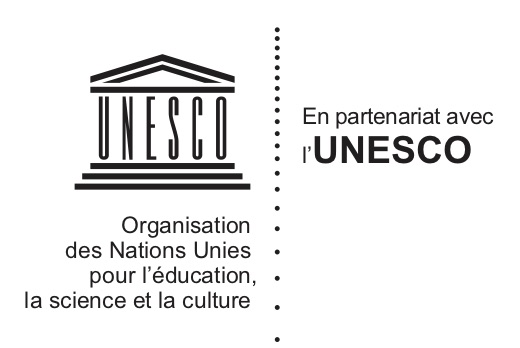Indigenous object/objet autochtone
30 Vigango – Denver Museum of Nature and Science et Kenya
Le 19 février 2014, le Denver Museum of Nature and Science a remis 30 vigango – statues de bois gravées à la mémoire des ancêtres des Mijikenda – au gouvernement kenyan.
Afo-A-Kom – Furman Gallery and Kom people
The Afo-A-Kom is a wooden sculpture sacred to the Kom people, a tribal population of Cameroon. In 1966, it was stolen and subsequently sold to a New York art dealer.
Bible et fouet Witbooi – Namibie et Allemagne
En 2013, la Namibie a adressé à l’Allemagne une requête en restitution d’une bible et d’un fouet witbooi. Ces objets, dont était propriétaire le héros national namibien Hendrick Witbooi, ont été spoliés par les troupes allemandes en 1893, lors d’une attaque menée par ces dernières contre la ville de Hornkranz afin de taire les soulèvements de la population contre l’occupation militaire allemande. Après des années de négociation, l’État allemand a finalement accepté de rendre les objets demandés. La restitution a eu lieu le 28 février 2019, à Gibeon, berceau historique de la communauté witbooi.
Chasuble – Paraguay et Musée d’ethnographie de Neuchâtel et François Machon
En 1889, le Musée d’ethnographie de Neuchâtel (MEN) reçoit en don une chasuble probablement spoliée au Paraguay pendant la guerre de la Triple Alliance (1864-1870). En 1926, le médecin neuchâtelois François Machon, alors Consul du Paraguay à Lausanne, propose au MEN le retour de la chasuble en échange du don de sa collection ethnographique, ce que le MEN accepte.
G’psgolox Totem Pole – Haisla and Sweden and the Stockholm Museum of Ethnography
In 1927, a totem pole belonging to the Haisla tribe in Canada was stolen and brought to the Stockholm Museum of Ethnography. In 1991, the tribe discovered the location of their totem pole, known as the G’psgolox totem pole, and requested that it be returned. After fifteen years of negotiations, the G’psgolox totem pole was formally returned to the tribe in 2006.
Great Zimbabwe Bird – Zimbabwe and Prussia Cultural Heritage Foundation, Germany
The lower half of a stone bird discovered in Zimbabwe under dubious circumstances was bought by the Museum für Völkerkunde in Berlin around 1907. During the Second World War, the stone was removed by the Russian Army. After the fall of the Soviet Union, it was returned to the Museum für Völkerkunde in Berlin. In 2000, the Prussian Cultural Heritage Foundation – which managed the collection of this museum – under the pressure of the German federal government finally returned the fragment of the stone bird to Zimbabwe under the terms of a permanent loan.
Hopi Masks – Hopi Tribe v. Néret-Minet and Estimations & Ventes aux Enchères
Between 2013 and 2014, dozens of Hopi’s sacred objects were sold at auctions in Paris despite strong protests and legal actions launched by the Hopi tribe. These actions were unsuccessful because French judicial authorities denied legal standing to the Hopis and considered that the sales did not violate French law.
Maori Panels – New Zealand and Ortiz Heirs
In 1972, five rare Maori wooden panels were discovered in a swamp in New Zealand’s North Island. Shortly after the discovery, the panels were illegally exported out of the country by an antiquities dealer and then bought by Swiss collector George Ortiz. In 2014 New Zealand obtained the return of the Maori panels by virtue of an agreement with the heirs of Ortiz.
Masque Makondé – Tanzanie et Musée Barbier-Mueller
En 2010, le Musée Barbier-Mueller fait don du Masque Makondé à la Tanzanie, et met ainsi fin à un litige qui aura duré plus de 20 ans. Le litige fut porté devant le Comité intergouvernemental de l’UNESCO. L’Office fédéral suisse de la culture (OFC) est aussi intervenu.
Masque Nalindele – Zambie et Personne privée
En juin 1989 le Masque Nalindele est volé au Musée national de Livingston en Zambie. En 1996 un antiquaire l’acquière à Paris. Apprenant qu’il s’agit d’un objet volé, il décide de le restituer aux autorités belges que le restitueront par la suite à la Zambie.
Wasco Sally Bag – American dealer and Paul Cary and the Yakama Nation Museum
In 2007, Paul Cary acquired a Wasco Sally bag, an object from the Native American group, the Yakama Nation, from an American dealer. When Paul Cary learned that the bag was stolen from the Yakama Nation Museum, he returned it to the dealer and informed the museum. Subsequent negotiations initiated between the museum and the dealer would have remained unfruitful, if it was not for the involvement of Paul Cary. He offered the dealer financial compensation for half of his losses should he return the bag to the museum. Moreover, he would attempt to obtain the financing of the second half from the Yakama tribe. The parties agreed.
Waurà Indians Collection – Museum der Kulturen Basel, Penteado Coelho Heirs and Museu de Arqueologia e Etnologia Universidade de São Paulo, Waurà Indians
Vera Penteado Coelho, a Brazilian ethnologist, bequeathed to the Museum der Kulturen Basel her collection of Waurà cultural objects. Following opposition from the Waurà Indians and the Museu de Arqueologia e Etnologia Universidade de São Paulo, the Basel Museum entered into negotiations to allow the collection to remain in Brazil. Eight years later, in 2008, the collection was donated to the São Paulo Museum.
Document Actions










